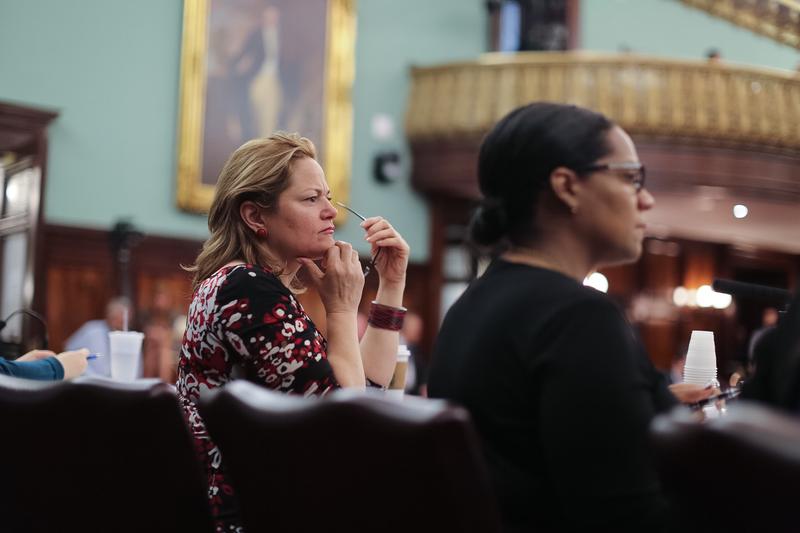
With just a month to go before their current terms end, City Council members took action on a handful of key bills they hope will keep neighborhoods affordable for residents and small retail businesses.
One of them will rezone Council Speaker Melissa Mark Viverito's own neighborhood, East Harlem. She called the plan a crucial bulwark against gentrification in a community that's losing 360 affordable apartments every year.
"From expanding affordable housing and providing substantial and unprecedented investments in our neighborhood's public housing stock to boosting employment in local businesses and revitalizing La Marqueta, this rezoning plan presents a comprehensive vision for our neighborhood's future," she said.
Under the plan, developers will be allowed to build bigger buildings in exchange for ensuring a portion of the apartments have below-market rents. The city estimates the rezoning of some 96 blocks will lead to the construction or preservation of 4,000 affordable apartments, and includes more than $178 million for neighborhood amenities and infrastructure.
But some residents said the plan isn't good enough. They worry the apartments won't be affordable to the lowest income people who need housing most. And they worry about an influx of market-rate apartments in a neighborhood that's already changing fast.
In a packed legislative session, council members also passed a controversial plan to redevelop the old Bedford Armory in Crown Heights into apartments and a recreation center. The project has roiled the community, but council member Laurie Cumbo said she was able to negotiate changes that make it a win for residents. Under the final deal, more than half of the apartments will have below-market rents, and there will be no market-rate condos as originally planned, only market-rate rentals. But activists who packed City Hall said developments on publicly owned land like this should be 100 percent affordable, and shouted "sell out" before being escorted out.
The council also passed a slew of other bills, including a handful of new protections for tenants and small businesses. One law will require some landlords to prove they haven’t harassed tenants before they can get work permits. Another provides more small businesses relief from the commercial rent tax.
